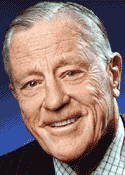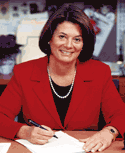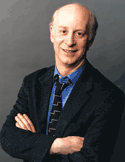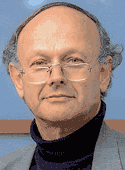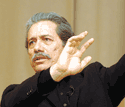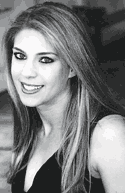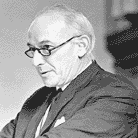
 |
||
The Yale Alumni Magazine is owned and operated by Yale Alumni Publications, Inc., a nonprofit corporation independent of Yale University. The content of the magazine and its website is the responsibility of the editors and does not necessarily reflect the views of Yale or its officers. |
Invited by the Yale Daily News, former Washington Post editor Benjamin Bradlee spoke on October 31 about the past and present of American journalism. “The quality of reporting and reporters covering wars today is much higher,” he said. “In the first place, there are no drunks left in our business.” Bradlee declined to reveal the identity of Deep Throat, the Post’s Watergate anonymous informant; he said the newspaper will make such revelations only after his or her death.
Catherine Lynch Gilliss has been appointed to a second five-year term as dean of the School of Nursing. In announcing the reappointment, President Richard Levin cited Gilliss’s success in strengthening the school’s doctoral and research programs. In addition, Gilliss launched the Yale-Howard Scholars Program, which encourages undergraduate nursing students at Howard University to pursue advanced education by pairing them with faculty mentors at Yale. Gilliss is also a director of the American Academy of Nursing.
Paul Goldberger ’72, the architecture critic of the New Yorker, talked about the World Trade Center, its loss, and the rebuilding process in a Poynter Fellowship lecture on November 11. Calling the Trade Center “a weird mix of delicacy and bombast,” Goldberger said that he misses its presence. “I never thought I’d consider the skyline without the World Trade Center dull,” he said, “but I do.” He called for the redeveloped site to incorporate a tall, uninhabited structure such as a broadcast tower. “We need a 21st-century Eiffel Tower for New York,” he said.
Since he won the Pritzker Prize, architecture’s highest honor, last year, Australian architect Glenn Murcutt has had opportunities to design large-scale projects around the world. But Murcutt, who lectured at the School of Architecture on November 7, said he wants to keep doing small, environmentally responsible projects in his home country. “I am an extraordinarily restless person,” he said. “I want to work with smaller projects because they give me a platform for experimentation.”
Actor and activist Edward James Olmos lectured on ethnic diversity on November 15 as a Chubb Fellow. Raised as a “Spanish-speaking Southern Baptist” in Los Angeles, Olmos blamed educators for ignoring the contributions of America’s minority groups. “This country has fed our children, from the first grade through the twelfth grade, a one-course diet,” he said, challenging the audience to name non-white national heroes.
“I accepted the tap because of curiosity and stayed in because of the beer,” explained Secrets of the Tomb author Alexandra Robbins '98 about her membership in Scroll and Key. At a Saybrook College master’s tea on November 11, Robbins said she researched her book on Skull and Bones by going through a Bones membership catalog and finding alumni who were “sick of the rules like me” to interview. Her efforts were aided, she said, by a memo during George W. Bush’s campaign telling Bonesmen not to talk to the press. “It pissed them off,” she said. Close-Up
Eugene Victor Rostow ’33, ’37LLB, who died on November 25 at the age of 89, will always be associated by many people with his better-known brother Walt Rostow ’36 and their support for the Vietnam War as officials in the Johnson Administration. But at Yale, Gene Rostow is known for his half-century’s association with the Law School, most notably as its dean from 1955 to 1965. “He was perhaps the greatest dean the Law School ever had,” said another former dean, Guido Calabresi. It was as an undersecretary of state from 1966 to 1969 that Rostow became known as a defender of Johnson’s Vietnam policy, of which his brother, the national security adviser, was an architect. Rostow was born in Brooklyn in 1913 and attended high school in New Haven, where his father worked as a chemist. A top scholar and debater at Yale, he studied at Cambridge for a year after graduating then returned to Yale for law school. After a year in private practice, he joined the school’s faculty, where he remained—with occasional leaves for jobs in public service—until 1984. As dean, he remade the Law School’s curriculum to emphasize interdisciplinary connections. “Our purpose is to train lawyers, law teachers, and public servants who will be capable of constructive leadership in American life,” he explained at the time. |
|
|
|
|
|
|
|
|
©1992–2012, Yale Alumni Publications, Inc. All rights reserved. Yale Alumni Magazine, P.O. Box 1905, New Haven, CT 06509-1905, USA. yam@yale.edu |
||
